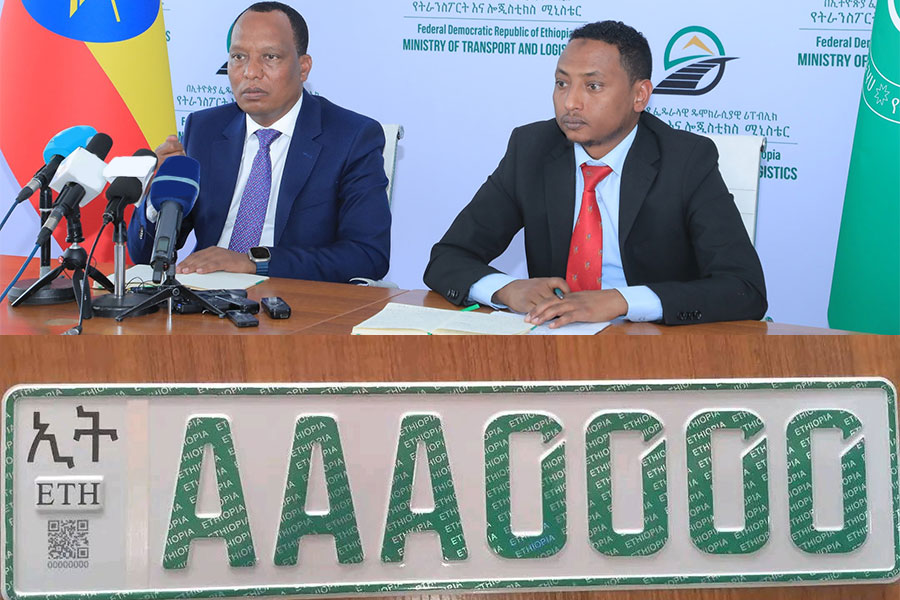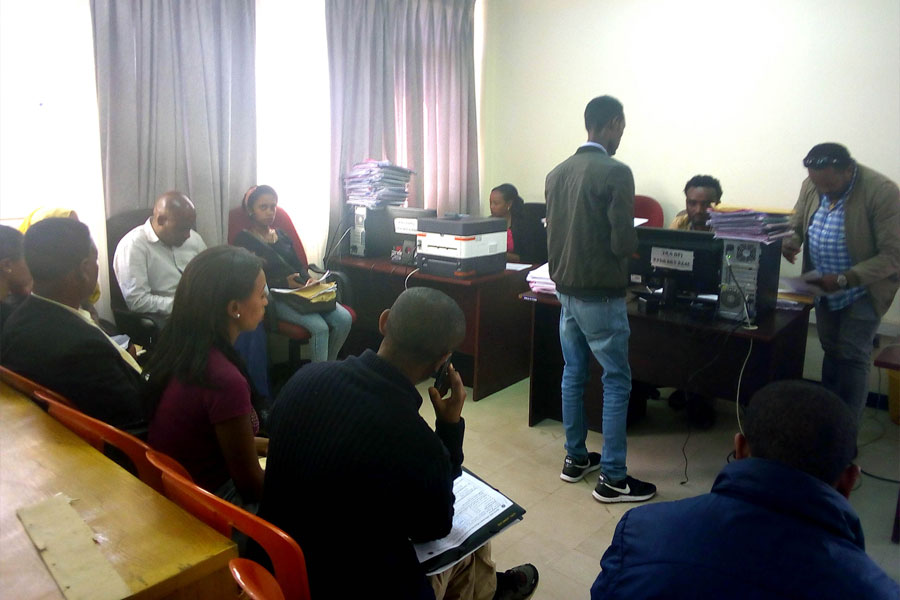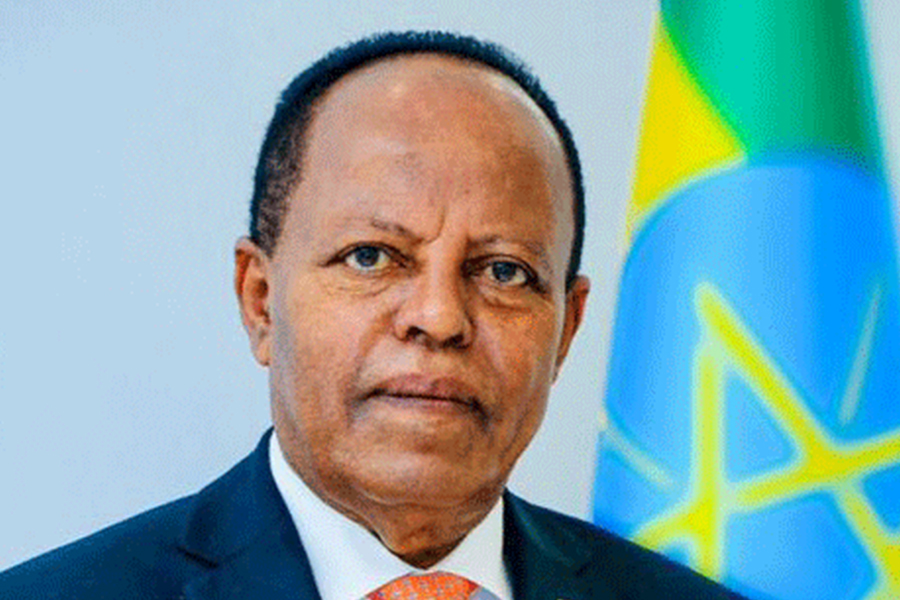
Kalkidan, 36, a mother of two, makes a daily commute from her home around Ayat Tafo to the Amist Kilo area (covering 18Km) where she works. She moved to the capital’s outskirts two years ago, looking for affordable housing that averages 6,000 Br monthly rent. Her husband is an informal dealer hustling in the city.
Kalkidan cannot benefit from the transport system designated for public employees as she has to take her daughter to school. By the time she is done with the house chores and dropping off her child at the nearby school, she has to deal with the long queue for public transport coupled with the traffic jam. It usually takes her an average of an hour and a half to get to the office leading to late arrivals. Ironically, Kalkidan is in the high-paid bracket among employees in one of the City Administration Offices; she takes home a monthly net of 8,000 Br.
However, this income is hardly sufficient to cover monthly transport costs, let alone household expenses, usually leaving her with 2,000 Br after covering rent. Things have worsened in the past six months with the transport tariffs rising. She has been forced to dig into her husband’s pocket.
“The last time I got a 1,000 Br salary adjustment was a couple of years ago,” she told Fortune.
The “raise” is far lower than the galloping inflation that has taken over the capital. Kalkidan faces jaw clenching and eye protruding prices whenever she visits the local marts. She recalled when she tried to buy a diaper for her baby girl, the price showed a 75 Br increase from the last time. It was the last time she asked to buy diapers.
It has been five months since Prime Minister Abiy Ahmed’s (PhD) administration began gradually lifting off fuel subsidies. Officials identified public transporters as beneficiaries of long-held subsidies on fuel with hopes of protecting people like Kalkidan from shouldering the burden. A project office under the Ministry of Transport & Logistics, working on national fuel subsidies, registered nearly 190,000 vehicles in its database. Two-thirds are active users.
The officials believe that the gradual lifting of subsidies protected the public from facing the impact at once.
However, the effect of the cross-country public transportation tariffs adjusted following the recent rise in fuel prices is felt by commuters like Solomon Shentama, an agro economist. He spends nearly a quarter of his monthly gross salary of 10,000 Br, paying for transportation. He finds the living cost in the regional states is relatively better, making it “bearable”.
He makes at least two round trips a month from Harar town to the capital, 558Km, to process his applications to travel abroad to study for his postgraduate studies.
“I spent double what I did before,” said Solomon.
Public transporters benefit from a daily fuel subsidy of 102Ltr to seven litres per car. Gas stations then cashback drivers through Telebirr. The financial service app by the state-owned Ethio telecom transacted more than 165 billion Br in the last six months, earning it 82.5 million Br. Telebirr subscribers increased to 27.2 million in less than two years of its launch in May 2021, a 38.8pc share of Ethio telecom customers.
Long queues to fill up on fuel around Bole Road.
Addis Abeba City Bus gets the largest volume of 102Ltr fuel for a bus at a subsidised rate. It runs 998 Sheger and Anbessa buses with a 32pc market share, serving an average of 868,000 commuters daily, burning up to 160Ltr.
According to Hayelom Redda, communications head, the company pays the balance from its budget.
“We requested the City Transport Bureau for a price adjustment,” he disclosed to Fortune.
Last week, the retail price of benzene reached 61.2 Br and diesel’s hiked up to 67.3 Br for a market whose demand saw an average 14pc annual increase over the past decade.
Drivers in the domestic market may feel grumpy about the second upsurge at the gas station in four months. The authorities do not seem to feel the desperation from the roads.
State Minister for Transport & Logistics (MoTL), Bereo Hassen, claims last week’s adjusted prices are not much compared to the international market. Consumers in the fixed income group may not have wages acclimated enough to shield them from the rising cost of living fuelled by increases at the pumping stations.
“Salary adjustment needs the macroeconomic committee’s decision,” said the State Minister, referring to the possibility of wage review for the civil service members such as Kalkidan.
The rise of prices in the market is unforgiving for many consumers. Year-on-year inflation accelerated to 35.1pc in November; it was 31.7pc a month before, driven by growing food prices.
The authorities in the trading front say they are responding to the challenge. The Ministry of Trade and Regional Integration (MoTRI) facilitated the provisions of edible oil and sugar at affordable prices, according to its communications head, Kumneger Ewnetu.
However, this does little to support consumer cooperatives due to the cost of transportation added to factory gate prices. Five litres of imported palm oil was sold for 947 Br, a little 100 Br more expensive than domestically bottled oil. The Ministry subsidised the cost of edible oil for the Christmas holiday two weeks ago, which could be changed after market research, said Kumneger.
For an economy that sustains a budget deficit surpassing four per cent of the GDP, macroeconomic policymakers are averse to subsidies on commodities available to the mass market. Nonetheless, the authorities find the annual spending on fuel subsidies the most demanding on the federal budget. Motorists and industries burned close to 2.6 billion litres of fuel last year, registering a 6.3pc growth from the previous year. The burden on the budget is equally daunting, costing the economy three billion dollars, exhibiting a whopping 75pc increase from the previous year.
The Petroleum & Energy Authority regulates fuel imports and distribution from the ports in Djibouti to 1,106 gas stations across the country through 43 oil companies.
Bekelech Kuma, the Authority’s communications head, disclosed the federal government faced a bill of 182 billion Br in deficit financing before the national subsidy was lifted in July. The Authority’s officials may feel optimistic about lowering the monthly subsidy value from 15.8 billion Br in July to 3.7 billion Br in December last year. However, the discriminatory policy of rationing subsidies could do little to help those in the low-income group in the market; it only encouraged the rampant trade in the underground market.
Alarmed, the Authority’s inspectors shut down an Oil Libya gas station in the Addis Ketema District after “trespassers” were found allegedly filling barrels without entitlement to the subsidy.
The Petroleum Supply Enterprise, under Ethiopian Investment Holding, is the sole importer of diesel and petroleum products with a mandate to procure fuel from the international market. Its Chief Executive Officer (CEO), Tadesse Hailemariam, saw annual demand for fuel goes up to four million tons. If it were not for the pandemic and the war in the north, annual demand would surpass 4.6 million tonnes.
The gradual lifting of the subsidies, widespread speculation over the devaluation of the Birr against major foreign currencies, and the impending bills on property tax comply with a commitment the federal government made to the IMF in 2019, paving the way for foreign investors to enter the Ethiopia market with low capital, according to Alemayehu Geda (Prof.), an economics professor at Addis Abeba University, known for his research works on inflation and foreign exchanges.
Vehicle owners and drivers feel the subsidy is not considering the wave of inflationary pressure that hits them.
Asnake Mekuria, 30, has been a minibus driver for over a decade, onboarding passengers from the congested Lamberet, one of the six terminals in the east gate of the capital. He collected up to 70 Br each from 14 passengers going to Bishoftu (Debre Zeit), 45Km southeast of the capital.
He found the 20Ltr subsidy quotas allocated to him insufficient and a “headache”; he hardly makes more than two daily rounds.
He argued the subsidy does not consider the cost of spare parts.
“I paid 10,000 Br for a tyre,” he said.
He imposed up to 30 Br higher than the regular tariff on passengers.
The Transport Bureau determining the tariffs forces drivers like Asnake to earn less than their fuel expense. He fears losing his livelihood as his employer is unhappy with the returns, and his biggest worry is being unable to provide for his wife and newborn baby.
Asnake is hardly alone.
Letarik Adgole, a taxi driver in Addis Abeba, is desperate and plans to sell his car to move on to another business.
“It’s not a source of reliable income anymore,” Letarik told Fortune.
The withdrawal of transporters from business adds fuel to the fire with the long queue at taxi and bus stations in the capital. The Addis Abeba Transport Bureau dispatches nearly 8,000 vehicles daily, a third less than those operating two years ago.
Suleman Mohammed, head of the National Targeted Fuel Subsidy Project under the MoTL, believes that the arguments raised by the drivers are invalid. His office suspended nearly 3000 cross-country buses, forcing passengers to pay over tariffs.
“Passengers should report these activities,” said Bereo, the state minister. “We can take measures.”
Bereo does not see the hurdle in the quota.
“A committee conducts a study before any amount of quota is set,” he said.
Comprising members from the Petroleum & Energy Authority and the ministries of Trade and Transport, a steering committee headed by Gebremeskel Chala, the minister of Trade, was established last year to implement the fuel subsidy project.
The committee’s work pleases little leader of the Ethiopian Petroleum Dealers’ Association, a lobby group representing 300 dealers. The Association mourned the lower profit margin of 10,350 Br from a 45,000Ltr fuel truck. It takes over three million Birr to buy and transport 45,000Ltr of fuel from Djibouti.
According to Efrem Tesfaye, an association member, earnings in the recent adjustment turned 39,500 Br but did not make much difference as fuel prices kept going up. Federal authorities eying to slashing massive subsidies, transporters in the value chain pushing added costs to commuters, members of the civil service such as Kalkidan and those in the fixed income bracket remain at the bottom of the barrel, reaping what they did not sow.
PUBLISHED ON
Jan 14,2023 [ VOL
23 , NO
1185]

Radar | Apr 20,2019

Commentaries | Jan 16,2021

Sunday with Eden | Feb 12,2022

Agenda | Nov 20,2021

Commentaries | Jan 05,2019

Verbatim | Sep 01,2024

Verbatim | Aug 22,2020

My Opinion | Oct 01,2022

Radar | Nov 07,2020

Radar | Jun 29,2019

Dec 22 , 2024 . By TIZITA SHEWAFERAW
Charged with transforming colossal state-owned enterprises into modern and competitiv...

Aug 18 , 2024 . By AKSAH ITALO
Although predictable Yonas Zerihun's job in the ride-hailing service is not immune to...

Jul 28 , 2024 . By TIZITA SHEWAFERAW
Unhabitual, perhaps too many, Samuel Gebreyohannes, 38, used to occasionally enjoy a couple of beers at breakfast. However, he recently swit...

Jul 13 , 2024 . By AKSAH ITALO
Investors who rely on tractors, trucks, and field vehicles for commuting, transporting commodities, and f...

Oct 4 , 2025
Eyob Tekalegn (PhD) had been in the Governor's chair for only weeks when, on Septembe...

Sep 27 , 2025
Four years into an experiment with “shock therapy” in education, the national moo...

Sep 20 , 2025
Getachew Reda's return to the national stage was always going to stir attention. Once...

Sep 13 , 2025
At its launch in Nairobi two years ago, the Africa Climate Summit was billed as the f...